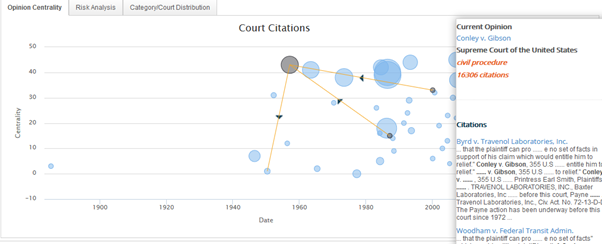Legal research is an integral and important aspect of any successful law practice. Most of the legal research skills professionals need to understand and interpret a complex issue are taught in law school. Twenty years ago almost all legal research was performed at the local law library. However, everyday more and more legal information can be found online in nontraditional formats. Therefore, most legal professionals rely on the internet in one way or another to acquire new legal knowledge regarding a legal question. Unfortunately, there is a lot of inaccurate information out there and it may be difficult to determine what sources are good ones and whether the law you are citing in a brief or motion is good law.
A subscription to a legal research database can be expensive. However, relying on poor sources when researching a complex legal problem can have dire consequences for both an attorney and a client. A poor source is a source that does not have any legal authority to support the source’s assertions. For example, there are thousands of legal blogs found online ranging from car accident lawyers to criminal law attorneys offering all forms of free, legal advice. Therefore, it is very important to double-check all relevant law against any assertion made in a legal blog. In addition, pay close attention to where the attorney is licensed and practices law because laws vary greatly state by state.

Failing to shepardize a case to confirm the case is still good law can also cause significant problems. Shepardizing, or keyciting a case, is the process of consulting legal sources such as Shepard’s to see whether a case has been overturned or questioned by other courts or cases. Citing a case that has later been overturned can greatly weaken your case. Therefore, it is essential that you follow all of the case’s activity especially if you are placing a great amount of weight on the outcome of the case.
In addition, you may stumble upon conflicting legal research and be uncertain regarding what law prevails. The answer will depend on what state you are practicing law in and whether state or federal law applies. Be certain of this issue before you begin your research.
These are just a few of the most common issues you are likely to encounter when conducting legal research. Juritool helps you to avoid these pitfalls by guiding you throughout of your legal research with the visual maps.